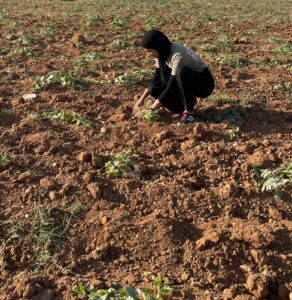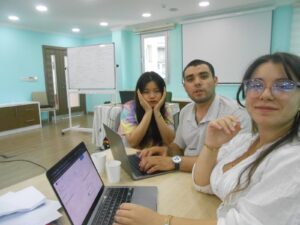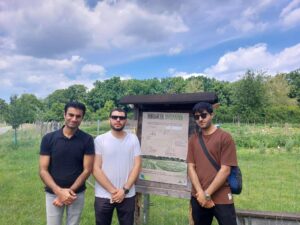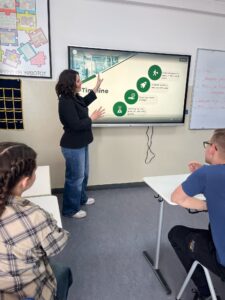My name is Maryam Salah Muhammad from Jordan. My business idea is to create affordable digital tools for small food producers—specifically, tech-based kits that help monitor growing conditions like light, water, and nutrients in urban farms.
I joined the job shadowing because I wanted to see how these systems function in real-life situations and to understand how tech could realistically help people manage food production better.
I got started with the local workshop hosted by PLAY Jordan, where we explored sustainable food systems, social innovation, and  entrepreneurship. That was the first time I realized how technology could play a role in food resilience. The international seminar expanded this even more, introducing me to peers from other countries who were also using practical ideas to tackle food-related challenges. These steps led me to focus my idea and prepare for the job shadowing phase.
entrepreneurship. That was the first time I realized how technology could play a role in food resilience. The international seminar expanded this even more, introducing me to peers from other countries who were also using practical ideas to tackle food-related challenges. These steps led me to focus my idea and prepare for the job shadowing phase.
The job shadowing took place with a smart agriculture initiative in Amman. Their work focuses on urban hydroponics—growing plants without soil, using tech systems that reduce water waste and increase control.
What I learned during the experience is that you don’t need fancy, expensive tools to make a difference. Many small producers just need systems that are reliable and easy to use. That changed how I approached my idea. I started designing a simple monitoring device that could give basic readings and send alerts, all with an interface that anyone can understand. One of the best parts of the experience was seeing how interested people were in using tech—even those who didn’t have technical backgrounds. That was a clear sign to me that
accessibility and simplicity are key.
This experience changed how I think about innovation. It’s not about building the most advanced system—it’s about solving the right problem in a way people can actually use. I became more focused on building solutions that are clear, affordable, and scalable. I also feel more confident about turning an idea into something practical.
My next step is to finalize a working prototype of the tool and test it with local producers. I hope it can become part of a larger effort to support smart food systems in urban areas. To anyone considering this kind of experience, I’d say: don’t just build what you think is useful—go ask people what they need. Then build that.
Maryam




